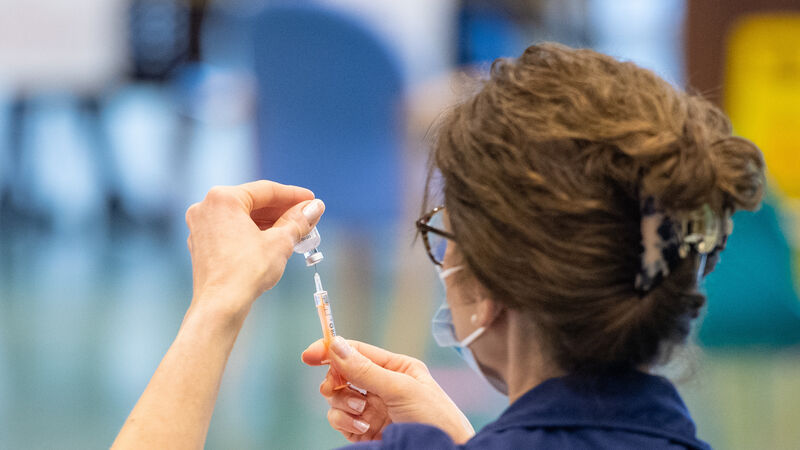Q&A: What is the latest on Covid-19 vaccination programme?

A nurse prepares a dose of the Oxford/AstraZeneca Covid-19. Ireland is set to receive 3.3m doses of this vaccine when it is approved. File picture.
About 1.9% of the population, including nursing home residents and frontline healthcare workers, have received their first dose of the vaccine, according to Health Minister Stephen Donnelly. The deadline for giving all people in nursing homes their first shot is next Sunday.













